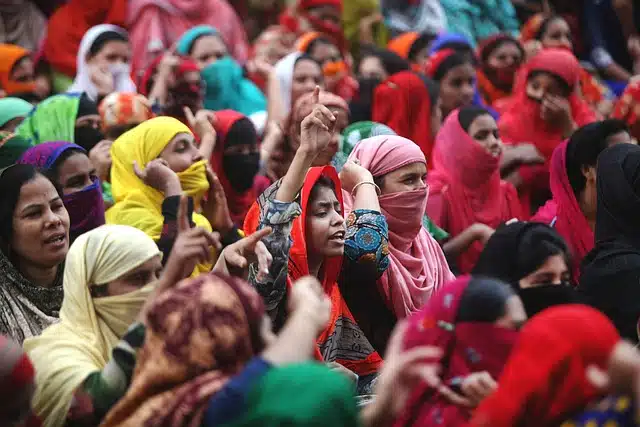
Citizen participation implies that individuals become involved in public affairs.
Participation , whose etymological origin is found in the Latin word participatio , is a term with several uses. On this occasion we are interested in staying with its meaning as the act and result of participating : intervening, taking sides or taking part.
A citizen , meanwhile, is an individual who assumes an active role in his or her community , respecting legal norms and exercising their political rights. The notion usually refers to the inhabitant of a city when he or she commits to the public or social sphere, making decisions and seeking to influence his or her environment.
What is citizen participation
Citizen participation is the process that citizens develop with the intention of getting involved in the management of public resources and in the execution of actions that produce an effect on the group . This participation is recognized as a right of the subjects, with which the State must provide the appropriate framework for its development.
Citizen participation is associated with democratic life . While in a dictatorship or an authoritarian regime citizens are obliged to abide by what the rulers order, in a democracy each individual is supported and encouraged to intervene in political issues and matters that affect the community as a whole.
In this way, there must be mechanisms that allow residents to spread their ideas and proposals so that those who administer the State can eventually put them into practice. It is important to consider that the notion of citizen participation goes beyond political parties or joining some state entity: each person must have a space where they can take part in social issues, communicating their vision.

Citizen participation can be channeled in different ways.
The importance of commitment
A peaceful, harmonious and progressing society requires the intervention of all its actors. Citizens must assume the commitment to look after the interests of the group and make their contributions to the resolution of common problems, acting responsibly and at the same time in a tolerant manner towards those who think differently.
This means that citizen participation transcends the fact of voting every certain amount of time. It is not enough to elect representatives and leave the decisions in their hands, but social progress demands that each individual be informed about reality and contribute to the construction of well-being.
Transcending party structures, citizen participation can be channeled through non-governmental organizations ( NGOs ), civil associations, unions, student groups, professional chambers and community assemblies, among other groups. It can even be exercised spontaneously or in an unorganized way, as sometimes happens when people decide to demonstrate in the streets to protest or to demand something from the authorities.
Government leaders have the obligation to facilitate these expressions and to listen to all voices in society . Having been elected by the people does not give them free rein to decide and act since society is diverse and consensus must be sought between the different sectors to minimize conflicts.
Example of citizen participation
In many regions, citizen participation could be clearly seen regarding voluntary termination of pregnancy . With the aim of modifying current laws, numerous people began to act in a coordinated manner demanding the right to legal abortion , while another group chose to demand respect for the continuity of pregnancy .
It should be noted that, for a change in legislation to be made, it is usual for the Legislative Branch to intervene. There parliamentary blocs with different ideologies interact; in this case, with positions for and against the possibility of voluntarily preventing a pregnancy from continuing.
Citizen participation, in this context, was exercised through marches , assemblies and meetings where both positions expressed their vision. These positions, each with their endorsements and rejections, were taken up by the political parties with a presence in Congress or Parliament . Thus, there were countries that ended up modifying their laws in this regard, as happened in Argentina where legal, safe and free abortion was approved under certain circumstances.
